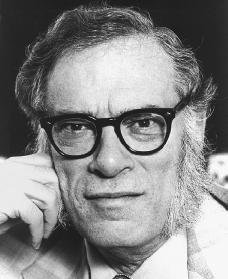Books By Isaac Asimov
- Pebble in the Sky (1950) – Galactic Empire Series
- The Stars, Like Dust (1951) – Galactic Empire Series
- Foundation (1951) – Foundation Series
- David Starr, Space Ranger (1952) – Lucky Starr Series
- Foundation and Empire (1952) – Foundation Series
- Second Foundation (1953) – Foundation Series
- Lucky Starr and the Pirates of the Asteroids (1953) – Lucky Starr Series
- The Caves of Steel (1954) – Robot Series
- Lucky Starr and the Oceans of Venus (1954) – Lucky Starr Series
- The End of Eternity (1955)
- The Martian Way and Other Stories (1955)
- Lucky Starr and the Big Sun of Mercury (1956) – Lucky Starr Series
- The Naked Sun (1957) – Robot Series
- Lucky Starr and the Moons of Jupiter (1957) – Lucky Starr Series
- The Rest of the Robots (1964) – Robot Series
- Fantastic Voyage (1966)
- The Gods Themselves (1972)
- The Bicentennial Man and Other Stories (1976)
- Foundation’s Edge (1982) – Foundation Series
- The Robots of Dawn (1983) – Robot Series
- Robots and Empire (1985) – Robot Series
- Foundation and Earth (1986) – Foundation Series
- Prelude to Foundation (1988) – Foundation Series
- Forward the Foundation (1993) – Foundation Series
About Isaac Asimov
 Isaac Asimov, a towering figure in the realm of science fiction literature, was born on January 2, 1920, in Petrovichi, Russia. His family immigrated to the United States when he was just three years old, and he grew up in Brooklyn, New York. Asimov’s insatiable curiosity about the universe and his passion for knowledge led him to pursue a career in science and writing.
Isaac Asimov, a towering figure in the realm of science fiction literature, was born on January 2, 1920, in Petrovichi, Russia. His family immigrated to the United States when he was just three years old, and he grew up in Brooklyn, New York. Asimov’s insatiable curiosity about the universe and his passion for knowledge led him to pursue a career in science and writing.
As a prolific author, Asimov penned numerous works spanning various genres, but he is best known for his contributions to science fiction. His groundbreaking ideas, coupled with his remarkable storytelling abilities, revolutionized the genre and inspired generations of readers and writers alike.
One of Asimov’s most enduring legacies is his Foundation series, which explores the rise and fall of civilizations in a vast interstellar empire. This series, along with his Robot series, introduced the concept of psychohistory and the Three Laws of Robotics, which have become iconic elements of science fiction lore.
In addition to his fiction writing, Asimov was also a respected science popularizer, essayist, and educator. His ability to communicate complex scientific concepts in a clear and engaging manner earned him a reputation as one of the foremost science writers of his time. He authored numerous books on a wide range of scientific topics, making him a beloved figure among both scientists and lay readers.
Throughout his life, Asimov remained dedicated to the pursuit of knowledge and the advancement of human understanding. His influence continues to be felt in literature, science, and popular culture, cementing his status as one of the greatest writers and thinkers of the 20th century. Isaac Asimov’s remarkable intellect, boundless imagination, and enduring legacy ensure that his contributions to literature and science will be cherished for generations to come.

